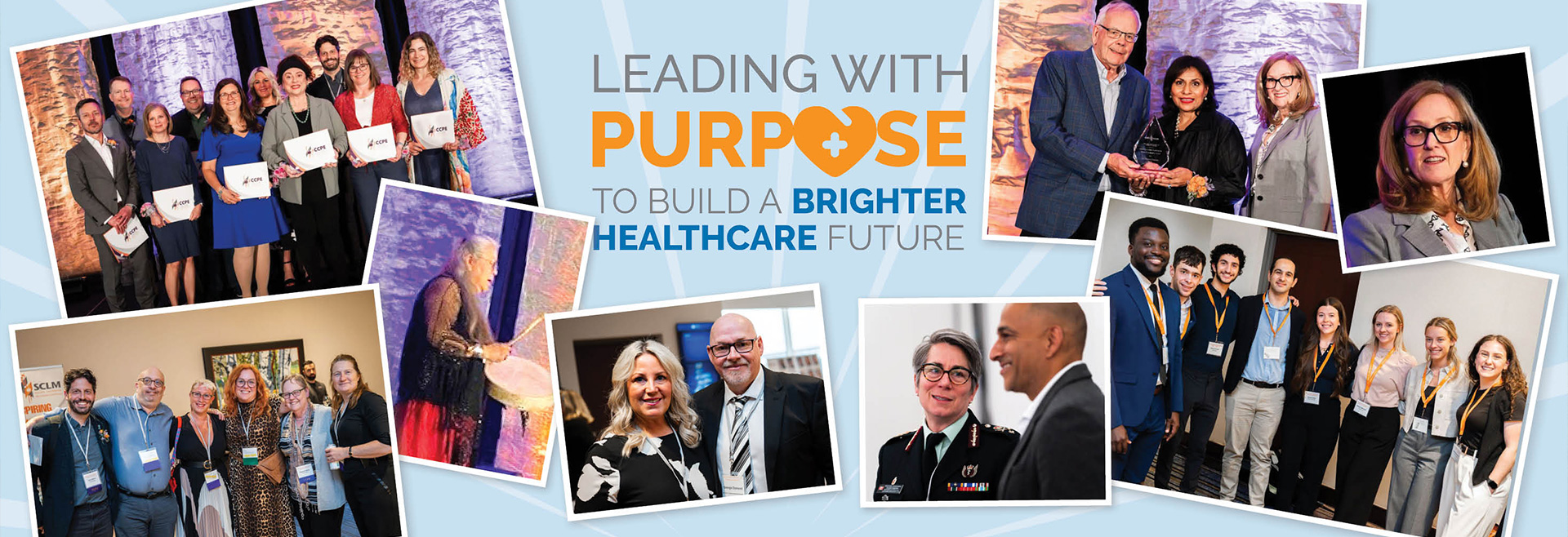

CCPL2025
Bridging policy and practice to build a health care system that works for all
Hosted by Scott McLeod, Registrar and CEO of the College of Physicians and Surgeons of Alberta, the Panel included Sarah Yassami, MD, UBC IMG Principal LEAD; Michael Ertel, MD, Chief of Staff, Kelowna General Hospital and Connie Paul (Teltitelwet), RN, Primary Care Medical Manager, Snuneymuxw Hulit Lelum
![]()
Giuseppe Guaiana, MD, PhD

This panel brought together diverse voices in health care leadership to focus on mentorship, workforce sustainability, rural care innovation, and systemic transformation. The conversation highlighted mentorship as a core responsibility across disciplines, including nurse practitioners, residents, occupational therapists, social workers, and international medical graduates (IMGs). The panelists emphasized that mentorship must extend beyond clinical skills and also foster leadership, cultural safety, and resilience within health care systems.
Virtual care, especially in rural and Indigenous communities, emerged as a transformative solution. Panelists described successful models, such as virtual emergency departments staffed via iPads that enable family physicians to rest while still maintaining care continuity. Such models reduce physician burnout, support rural nurses and IMGs, and maintain high standards of care. Virtual collaboration among paramedics, rural hospitals, and specialists is now vital in transporting critically ill patients from remote areas. The paradigm shift to the use of virtual care, once unthinkable, has become a cornerstone of care delivery in underserved regions.
Panelists agreed that retention is a deeper challenge than recruitment. Connie Paul shared personal reflections on why she stayed in a remote First Nations community for over 16 years, despite systemic barriers and limited access. She emphasized the importance of shared vision, community connection, and a culture of mutual respect. High retention rates in their community stem from strong leadership, cultural alignment, and long-term investment in building local health infrastructure, dental care, occupational therapy, Indigenous medicine, and more. The discussion underscored the need to understand why people stay, not just why they leave. Panelists advocated “stay interviews” over exit interviews.
A physician in the audience asked how health care systems can better support the “silent majority” of doctors who are currently doing the bulk of the work. Although efforts often focus on recruitment, she stressed the importance of retaining and recognizing these experienced physicians, ensuring their professional satisfaction and support through effective policies and programs.
Discussion shifted to the need for physician advocacy at policymaking levels — engaging ministries of health, associations (e.g., Doctors of BC, the Ontario Medical Association), and divisions of family practice. Panelists urged physicians to understand governance structures, join leadership tables, and push for realistic, system-wide solutions that balance resources and needs across facilities. Collaboration with other health professions and Indigenous governance was seen as essential for systemic change.
The panel concluded by emphasizing collective action, empowering clinicians across disciplines to advocate change, challenge systemic inertia, and build inclusive, sustainable health systems that meet the needs of all communities.
Author
Giuseppe Guaiana, MD, PhD, FRCPC, CCPE, is an associate professor of psychiatry, Western University; chief of psychiatry at St. Thomas Elgin General Hospital; director, Extended Campus Program, and clinical director, North of Superior Program.
Correspondence to: giuseppe.guaiana@gmail.com